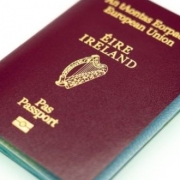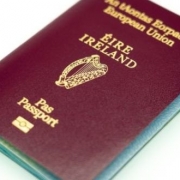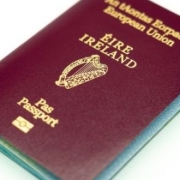MINISTER FOR JUSTICE ANNOUNCES NEW TEMPORARY PROCESS FOR GRANTING CITIZENSHIP DURING COVID-19 RESTRICTIONS
On 18th January 2021, the Minister for Justice Helen McEntee announced a new temporary process for the granting of citizenship during Covid-19 restrictions.
In normal circumstances, successful applicants are required to attend a citizenship ceremony in order to obtain a certificate of nationality.
However, citizenship ceremonies have been suspended since March 2020 due to the Covid-19 pandemic.
Under the new temporary system, qualifying applicants will be asked to complete a statutory declaration that will be emailed to them by the Citizenship Division of the Department of Justice. They will be required to bring the statutory declaration to one of the listed designated officials who will witness the applicant sign the statutory declaration.
The applicant must then send the signed statutory declaration, the appropriate fee and any other requested documentation to the Department’s Citizenship Division. A certificate of naturalisation signed by the Minister for Justice will then be sent to the applicant.
This new system is in place from 18th January 2021.
Commenting on the new system, the Minister stated Minister McEntee said:
“The granting of Irish citizenship through naturalisation is a privilege and an honour which is recognised by the thousands of people who apply every year. I am pleased that we can now bring some certainty to the people whose applications have effectively been on hold during the pandemic.
Approximately 4,000 applicants have not been able to receive a certificate of naturalisation due to the temporary suspension of citizenship ceremonies. The process I am opening today means that certificates can now be granted again, once the signed and witnessed statutory declaration and relevant fee has been received by my Department.”
The Department of Justice will be in contact with qualifying applicants regarding the requirements on a phased basis over the next few months until in-person citizenship ceremonies are able to recommence.
The Department stated that the 4,000 applicants currently waiting on naturalisation will have been provided with an opportunity to gain citizenship by the end of March.
The Minister also commented that in-person ceremonies are provisionally scheduled to resume in December 2021.
In addition to this, Minister McEntee outlined some additional digital measures that she intends to implement in order to simplify the naturalisation process:
“I am putting the Justice Sector on a Digital First footing and will move our services away from old, paper-based systems.
Plans for the digitalisation of the naturalisation process are well advanced, through increased digital and ICT investment. As part of this process, eTax-clearance for citizenship applicants has been introduced. Online payments have been trialled for applications from minors and the process is currently being rolled out to adult applications on a phased basis.”
If you have any queries about the naturalisation process, please do not hesitate to contact our office.





